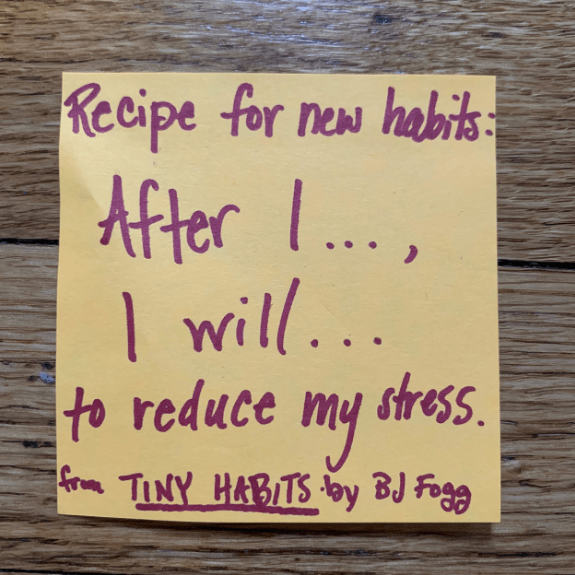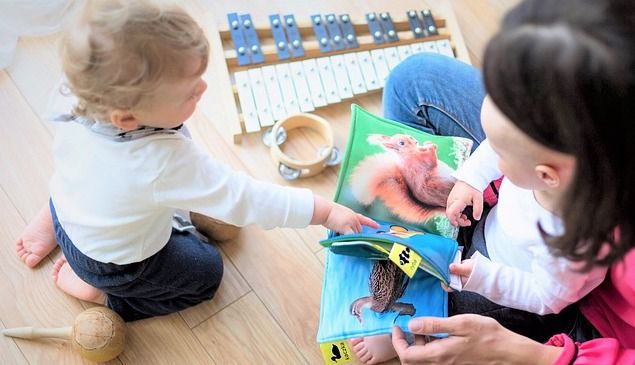Helping families relieve stress through many different strategies is an important part of our work at First Chance for Children. Strategies we offer to families range from assisting with diapers to planning goals to practicing mindfulness. Finding the right strategy to meet that family’s needs makes all the difference.
A recent book I read, Tiny Habits by BJ Fogg, offered up another helpful strategy to reduce stress — create tiny habits. Fogg’s research of habit-setting has shown that successes in starting tiny habits can lead to lasting, long-term change.
Here is his recipe for creating new habits to reduce stress:
After I ________, I will ________ to reduce my stress.
When trying a new strategy, it is tempting to start with a dramatic statement: “I will never worry again!” But true, lasting change does not need to be a big declaration. You can start tiny.
Here’s how you design your own tiny habits recipe. Write a list of 10 tiny behaviors that you think could help reduce your stress. The behaviors are small steps or habits that refocus your energy and calm your body (light a candle, take 3 deep breaths, say a prayer of gratitude). Then focus on 2-3 of the behaviors on your list. These behaviors should be ones that you already want to do [motivation] and that you are able to do right away [ability]. Motivation and ability play key roles in helping you create a new habit. Choosing behaviors that you dread or that are too hard or unrealistic will only add to your stress level. Select the behaviors that you believe will be most effective in helping you reduce stress.
Choosing when you will do your new tiny habit is also an important part of your success. Think about behaviors that already exist in your routine (pour my coffee, turn on the shower, head hits the pillow). These are called your anchors, and they will serve as your prompt to do your tiny habit. You will choose an anchor to pair with your new tiny habit.
Here are some examples to help you complete your Tiny Habits Recipe:
After I wake up and put my feet on the floor, I will say “Today is going to be a great day.”
After I turn on the shower, I will say a quiet prayer of gratitude.
After I pour my coffee, I will take three deep breaths.
After I finish lunch, I will walk outside.
After I put my kids down for a nap, I will make a cup of tea and light a candle.
After I get upset with a family member, I will take a walk to the mailbox alone.
After my head hits the pillow, I will think about one thing I’m grateful for from the day.
If you find success in your recipe, keep going! Write a post-it note with your new Tiny Habit Recipe as you begin. If it doesn’t work, it’s okay to revise. Maybe try a new pairing of anchor and tiny behavior. Maybe choose a tiny behavior that is more realistic. Or, make your chosen behavior even tinier. Is a 5-minute meditation too long? Instead try taking 3 deep breaths.
For those of us who are feeling overwhelmed by the rapid changes in our daily lives right now, this may be the right strategy to purposefully work on reducing stress one tiny step at a time.

What tiny habits can you create today to reduce stress?

